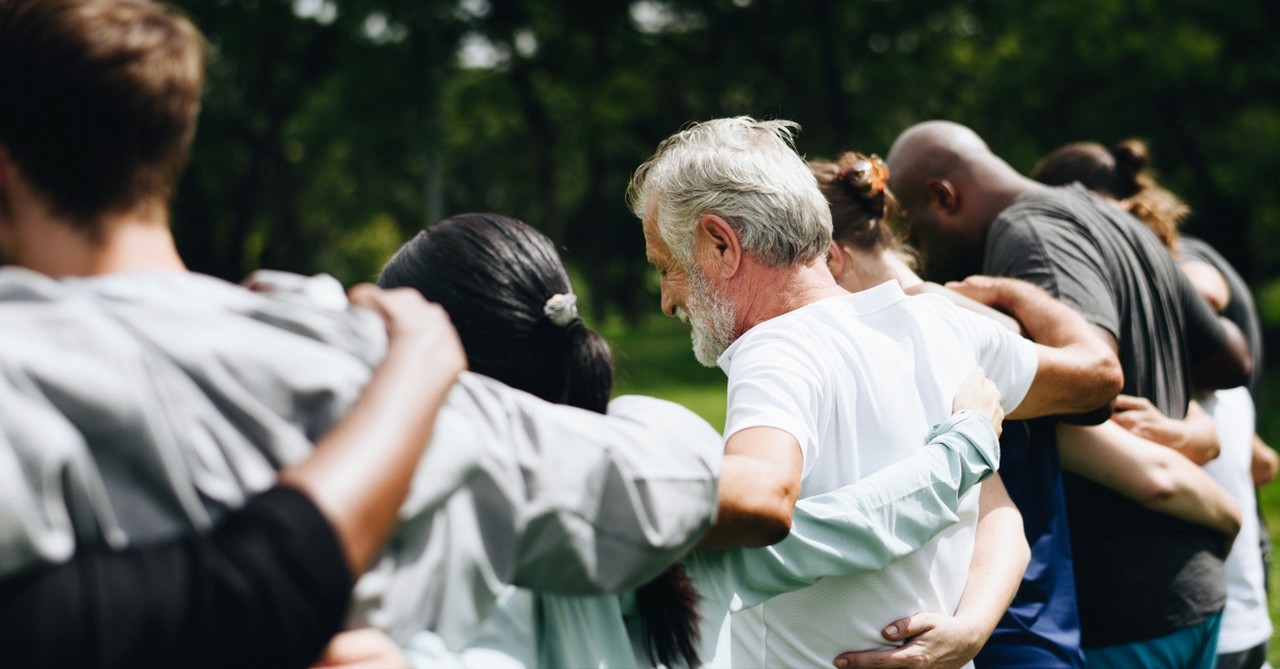How to Love One Another in Divisive Times

If you are finding yourself wondering how you can show love and support to any person of any color right now, you are not alone.
How do we “reach out to someone different” as our pastors in our predominantly white churches are telling us to do? Personally, I’m wondering: How do I show a person of color that I love them, without accentuating they are different? And for all of us, how do we simply love each other during such a volatile and sensitive time?
Jesus prayed to His Heavenly Father that we, as believers, would be one with one another just as He and His Father were one with each other (John 17:20-21). I used to believe that meant Christians should not have disputes with one another. I’m coming to see that the heart of God encompasses so much more than our petty divisions within the church.
Jesus said the world would know Him by how we loved one another—regardless of age, creed, color, ethnic origin, belief, cultural differences, nationality, lifestyle, opinion, or perspective. It was a tall order, and one I believe we have yet to fully comprehend.
After talking with a diverse group of people (as well as our Creator), I came up with six suggestions of how to truly love one another in divisive times like these:
Photo Credit: ©GettyImages/monkeybusinessimages
1. Get a Good Look at How God Loves You

1. Get a Good Look at How God Loves You
SLIDE 1 OF 5
Jesus said in John 13:34-35: “A new commandment I give to you, that you love one another, even as I have loved you, that you also love one another. By this all men will know that you are My disciples, if you have love for one another” (emphasis added).
How can you and I know how to genuinely love others as Jesus loves us if we don’t first fully understand His love? Ask God for a heart to understand His unconditional, sacrificial love for you, and then pray for the indwelling Holy Spirit to help you demonstrate that unconditional, sacrificial love to others.
2. Ask God to Show You His heart for Others
First John 4:7-8 admonishes: “Beloved, let us love one another, for love is from God; and everyone who loves is born of God and knows God. The one who does not love does not know God, for God is love.” That Scripture clearly tells us if we don’t love others, as God commands, we clearly don’t even know God, because He is the essence of love.
We may seek “justice” for others but justice merely means that someone gets what they deserve. Yet, every one of us, apart from faith in the redeeming blood of Christ, deserves an eternity of separation from God because of our sins.
Instead of seeking justice for others, (that they get what they deserve), God’s Word tells us to go far beyond that and not only be “devoted to one another in brotherly love” but to “give preference to one another in honor.”
To give preference to someone is to go far beyond the minimum of what is merely fair and expected. By asking God to show you His heart (in His Word) for others, you will raise your standard and expectation of what you believe others deserve.
Photo Credit: ©GettyImages/Rawpixel
3. Ask God for His Opinion before Expressing Yours

3. Ask God for His Opinion before Expressing Yours
SLIDE 2 OF 5
You and I can come across far more critical than we realize. We sometimes have no idea the amount of pride and lack of love that we display through our opinions that we carelessly express without thinking about how they are perceived or what they reveal about the depths of our hearts.
Leah Olson, a student leader in racial reconciliation at Messiah College in Mechanicsburg, PA, posted this on social media:
“How often do we disguise our prejudices with righteousness or perceptions of being righteous? We are totally okay with treating some people differently because of the circumstances they are in or the things that they do. Not only do we accept treating people differently based on their situations, we celebrate it and spiritualize it.
We, myself included, have forgotten that the same Jesus who died for us, has also died for those we don’t understand and even those we don’t like. It is my responsibility and calling to be a good neighbor and it is your responsibility, too. Good neighboring is loving tangibly and out loud. Our world needs so much more love and grace than what we think people deserve.
Living a life that is more than justice looks like going the extra mile to make people feel seen and heard. It means working intentionally and diligently to change systems that lead to oppression. It means advocating. It means being an ally. Strive to live a life that gives to others the same grace that Jesus has given us.”
Ask God to reveal your deeply-ingrained (and therefore unrecognizable) prejudices, stereotypes, and old ways of thinking...and replace them with His thoughts for others.
Photo Credit: ©GettyImages/Ridofranz
4. Acknowledge Others’ Differences and Appreciate Them as God’s Handiwork

4. Acknowledge Others’ Differences and Appreciate Them as God’s Handiwork
SLIDE 3 OF 5
I’ve learned that millennials (like Leah, who was quoted above) have a better handle on how to love and appreciate others who are different from us. And their advice is that trying to be “color-blind” and not mention or think about one’s differences is not the best way to approach reconciliation and demonstrate love.
“I think we have to recognize each other and see each other for who we are—black, white, and so on,” Leah said, speaking from experience at her college which is actively seeking ways to be more racially diverse. “Without seeing the color of someone else, we can’t see their struggles and understand racism. We should love each other and treat each other with dignity and worth, not because we are the same, but because each of us are different and are beautiful creations of God. If we don’t notice the beauty that God has endowed on us, including our skin color, we are not able to truly appreciate and worship Him for it.”
Ask God to give you an appreciation of anyone who is different than you in their appearance, lifestyle, religion, opinions, and values. God loves without condition, and when we see others as He does—as His creation made in His image—we can begin to see that God’s love, in Christ, truly has no borders or limitations (Romans 8:38-39).
Photo Credit: ©GettyImages/Rawpixel
5. Educate Yourself about Injustice and Respond with an Open Mind

5. Educate Yourself about Injustice and Respond with an Open Mind
SLIDE 4 OF 5
When racial tensions are rising or a situation happens and you want to know how people of another ethnic or religious background are responding, do your research. Don’t expect your friends who are in the group being victimized or oppressed to educate you on the issues.
Educate yourself about the issues because many of them are exhausted talking about it. You and I shouldn’t have to be taught. We should care enough about the issues to educate ourselves about them, and then respond accordingly.
Once you know the issues, be a listener. Be open-minded to a different perspective. Be understanding that a different life context interprets life differently than you. Approach someone because you care, not only because you’re curious or collecting input.
And most of all, extend grace. A beginning step toward educating yourself and responding appropriately is grasping the difference between privilege and racism (or oppression). Bear in mind that if you have the ability to learn about racism (or another area of oppression), rather than experience it, that’s a privilege.
Photo Credit: ©GettyImages/fizkes
6. Get Uncomfortable for the Sake of Others

6. Get Uncomfortable for the Sake of Others
SLIDE 5 OF 5
In His sermon in Matthew 5, Jesus taught radical ways to show people you love them, which included:
- praying for those who persecute you,
- offering your other cheek when one of them is slapped, and
- volunteering to go the extra mile with someone who needs something.
Jesus was basically saying “Get out of the box and start feeling uncomfortable in the way you show love toward others.”
Leah, who posted her feelings about racial reconciliation on social media, got out of her comfort zone last weekend when she joined her brother in a protest at the Stafford County Courthouse in Stafford County, VA. Although she was hesitant and even frightened to attend, she was so glad she did.
“I’m very passionate about racial reconciliation and injustice but I was frightened to be associated with a protest that might get violent or break some laws,” she said. I understand their outrage, but I didn’t want to be grouped with protesters who were outraged.” Yet she found this peaceful protest to be “a beautiful experience.”
“It wasn’t the negative rhetoric that you might expect in a protest,” she said. “People were so focused on peace.” Every speaker and chaplain who spoke, also prayed. “As people marched together to the police station, chanting, there was a peaceful unity to it and a spirit of love whether you were young, old, Hispanic, Black, Asian, Caucasian, Muslim, or Christian. There was such a spirit of inclusivity. I felt it was a tangible way to love people. I walked away feeling peace, joy, and such hope as I saw so many people coming together for a common cause.”
“People were handing us water. One black American woman started fanning me because she saw I was sweating and my poor, pasty skin couldn’t take the heat that day. People asked us our names and thanked us for being there. I found myself in tears as I saw people coming together from all walks of life to march for justice. We came together in the name of Jesus. We came together, united.”
Can you get outside the box and do something uncomfortable to relate to others who have felt uncomfortable most of their lives? Ask God to show you how you can practice His radical ways of showing love, turning the other cheek, and going the extra mile for other people whom God loves just as much as you.
Photo Credit: ©GettyImages/Rawpixel

Originally published June 12, 2020.







